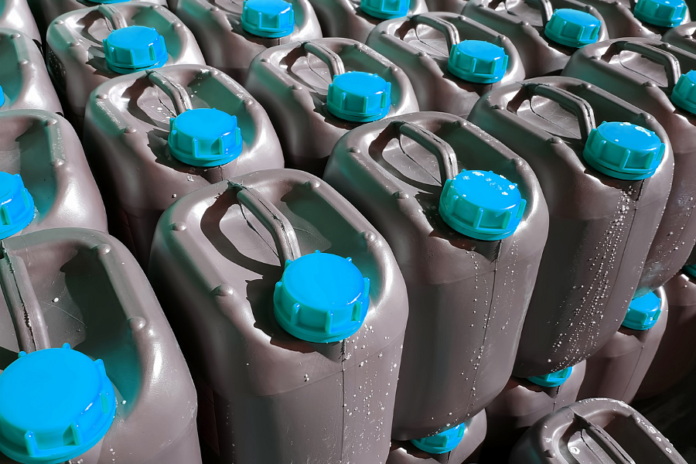AdBlue is a vital solution for modern diesel vehicles, enabling them to meet stringent emissions standards by reducing harmful nitrogen oxide emissions. For businesses operating fleets, having an effective AdBlue storage system ensures smooth operations and compliance with environmental regulations. In the UK, where businesses face a combination of fluctuating weather conditions and strict industry standards, selecting the right AdBlue storage tank is essential. This decision isn’t merely about acquiring a container; it’s about ensuring operational efficiency, cost-effectiveness, and environmental responsibility. Below, we discuss four crucial factors that UK businesses should consider when investing in an AdBlue storage tank.
AdBlue is a vital solution for modern diesel vehicles, enabling them to meet stringent emissions standards by reducing harmful nitrogen oxide emissions. For businesses operating fleets, having an effective AdBlue storage system ensures smooth operations and compliance with environmental regulations. In the UK, where businesses face a combination of fluctuating weather conditions and strict industry standards, selecting the right AdBlue storage tank is essential. This decision isn’t merely about acquiring a container; it’s about ensuring operational efficiency, cost-effectiveness, and environmental responsibility. Below, we discuss four crucial factors that UK businesses should consider when investing in an AdBlue storage tank.
1. Capacity: Aligning with Fleet Requirements
Determining the right capacity for an AdBlue storage tank is a critical first step for fleet operators. Fleet sizes and operational demands vary significantly across businesses, and the chosen tank must cater to your specific needs while allowing for potential growth. For example, small fleets may require tanks with capacities ranging between 3,000 and 10,000 litres, while larger operations might benefit from tanks holding up to 100,000 litres.
Undersized tanks can result in frequent refilling, causing unnecessary downtime and increasing logistical costs. On the other hand, oversized tanks can lead to wasted storage space and higher upfront investments without offering practical benefits. Businesses must evaluate their fleet’s average AdBlue consumption, taking into account vehicle types, usage frequency, and anticipated expansion. In British conditions, where diesel fleets often operate year-round, ensuring the tank can handle peak seasonal demands is also a key consideration. Choosing the correct capacity not only optimises operations but also reduces long-term expenses and enhances overall efficiency.
2. Material Durability and Corrosion Resistance
The UK’s variable weather—marked by frequent rain, cold winters, and occasional heatwaves—demands that AdBlue storage tanks are made of durable materials capable of withstanding such conditions. Steel tanks treated with additional corrosion protection are a practical and cost-effective choice for businesses. Unlike stainless steel tanks, which can be significantly more expensive, these coated steel tanks provide excellent resilience against rust and wear over time while being more economical.
AdBlue is highly susceptible to contamination, so the inner lining of the tank must also be designed to prevent chemical reactions that could compromise the integrity of the solution. Tanks with specialised coatings offer an added layer of protection, ensuring that the stored AdBlue remains uncontaminated, maintaining its quality and functionality. For businesses with outdoor storage facilities, these tanks are especially advantageous, as they endure harsh weather without degrading. This durability translates to fewer maintenance needs, saving costs and ensuring uninterrupted operations.
3. Regulatory Compliance and Environmental Safety
In the UK, businesses must comply with strict regulations governing the storage and handling of AdBlue. AdBlue tanks are required to meet ISO 22241 standards, which outline specifications to prevent contamination and ensure proper handling. Beyond this, companies must also adhere to guidelines issued by the Environment Agency to minimise environmental risks such as leaks or spills that could harm local ecosystems.
Failure to comply with these regulations can result in severe penalties, legal liabilities, and reputational damage for businesses. It’s crucial to choose tanks from reputable manufacturers that can demonstrate compliance with these standards. Additionally, businesses should ensure proper installation by certified professionals to meet legal requirements and avoid operational setbacks. Opting for tanks equipped with safety features, such as leak detection systems and secondary containment measures, further ensures adherence to environmental guidelines while protecting company assets.
4. Operational Convenience and Long-Term Value
An AdBlue storage tank should not only store but also facilitate easy access and usage for fleet operators. Features such as integrated pumps, lockable dispensing systems, and clear gauges simplify day-to-day operations. For busy fleet managers, time is a critical resource, and a well-designed tank that minimises manual effort and reduces downtime can significantly enhance efficiency.
Cost efficiency is another essential factor. While steel tanks with corrosion protection may have a higher upfront cost compared to some alternatives, they provide superior longevity and require less frequent maintenance. This durability results in substantial savings over time, making them a prudent choice for businesses. Furthermore, tanks with advanced monitoring capabilities, such as remote sensors that track fluid levels and usage patterns, help businesses manage their AdBlue supplies effectively, avoiding overstocking or running out unexpectedly. These features contribute to smoother fleet operations and reduce overall operational costs.
Supporting Sustainable and Efficient Fleet Management
For UK businesses reliant on diesel fleets, selecting the right AdBlue storage tank is a decision that impacts not just daily operations but also long-term sustainability goals. By considering key factors such as capacity, durability, compliance, and convenience, companies can make an informed choice that enhances efficiency and reduces costs. Steel tanks with additional corrosion protection offer a robust and reliable solution tailored to British conditions. When properly chosen and maintained, an AdBlue storage tank becomes a valuable asset that supports fleet productivity while meeting environmental responsibilities.
Help keep news FREE for our readers
Supporting your local community newspaper/online news outlet is crucial now more than ever. If you believe in independent journalism, then consider making a valuable contribution by making a one-time or monthly donation. We operate in rural areas where providing unbiased news can be challenging. Read More About Supporting The West Wales Chronicle






















